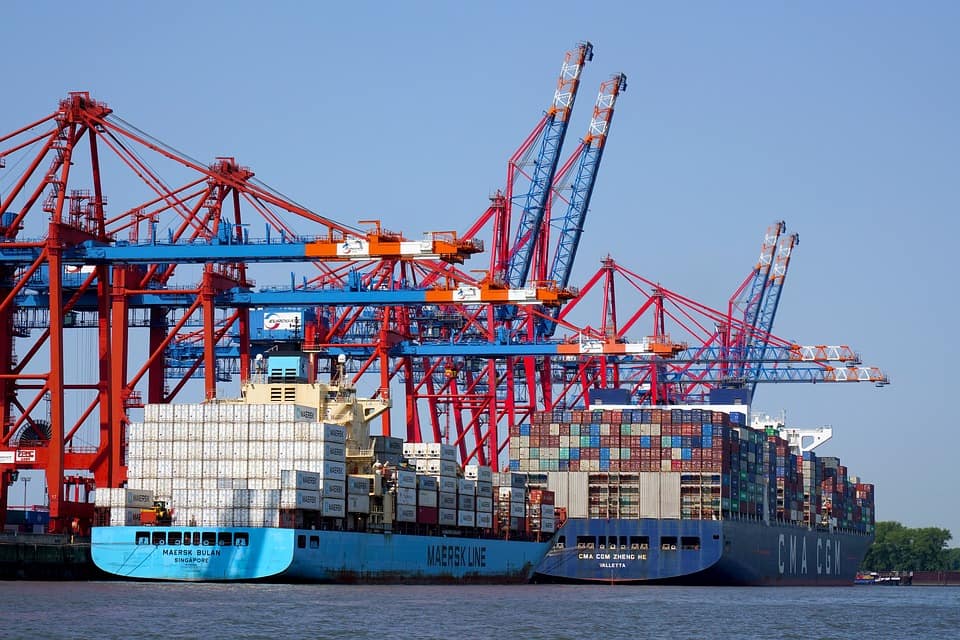Unlocking Transparency: How Blockchain Technology is Revolutionizing Supply Chain Management
The global supply chain can be a complex and opaque system, with multiple parties involved in the production, transportation, and delivery of goods. This complexity can lead to inefficiencies, errors, and even fraud. However, new technologies like blockchain are starting to transform the way businesses manage their supply chains, increasing transparency, efficiency, and trust.
What is Blockchain?
Before diving into how blockchain is revolutionizing supply chain management, it’s essential to understand what blockchain is. Blockchain is a decentralized, distributed ledger technology that records data across a network of computers, making it virtually immutable. This technology is best known for its use in cryptocurrency transactions, but its potential applications go far beyond digital currency.
How Does Blockchain Improve Supply Chain Management?
In a traditional supply chain, multiple parties are involved, each with their own set of records and procedures. This can lead to misunderstandings, disputes, and fraud. Blockchain technology solves these issues by creating a single, shared ledger that all parties can access and update in real-time.
Here are some ways blockchain improves supply chain management:
- Transparency: Blockchain provides real-time visibility into every stage of the supply chain, from production to delivery. This transparency reduces the risk of counterfeiting, tampering, and other forms of fraud.
- Immutability: Transactions recorded on a blockchain are virtually unchangeable, ensuring that data remains tamper-proof and secure.
- Efficiency: Blockchain automates many manual processes, reducing the need for intermediaries and streamlining supply chain operations.
- Security: Blockchain’s decentralized nature makes it virtually unhackable, reducing the risk of data breaches and cyber-attacks.
Case Studies: How Blockchain is Being Used in Supply Chain Management
Several companies are already using blockchain to transform their supply chain management processes. Here are a few examples:
- Maersk:container shipping giant Maersk is using blockchain to track and manage cargo, providing real-time updates on shipment status and reducing the need for paper documentation.
- Procter & Gamble: Consumer goods giant Procter & Gamble is using blockchain to track and verify the authenticity of high-value goods, such as fragrances and skincare products.
- Kantar: Food and beverage company Kantar is using blockchain to track and trace ingredients, ensuring the quality and authenticity of its products.
Benefits of Implementing Blockchain in Supply Chain Management
The benefits of implementing blockchain in supply chain management are numerous:
- Cost Savings: Automating manual processes reduces labor costs and increases efficiency.
- Increased Transparency: Real-time visibility into supply chain operations reduces the risk of errors and fraud.
- Improved Customer Experience: With real-time updates on shipment status, customers can better plan for arrivals and reduce the risk of delays.
- Compliance: Blockchain’s immutable nature ensures compliance with regulations and auditing procedures.
Obstacles to Adopting Blockchain in Supply Chain Management
While the benefits of blockchain in supply chain management are undeniable, there are several obstacles to adoption:
- Misconceptions: Many people are still unaware of the benefits and possibilities of blockchain technology.
- Implementation Complexity: Integrating blockchain into existing supply chain operations can be complex and time-consuming.
- Lack of Standardization: The lack of standardization in blockchain technology can create confusion and make it difficult to scale.
- Cybersecurity Risks: As with any digital technology, blockchain carries cybersecurity risks, including data breaches and hacking.
Conclusion
Blockchain technology is revolutionizing supply chain management by increasing transparency, efficiency, and trust. As more companies adopt blockchain, the benefits will become increasingly clear. While there are obstacles to adoption, the potential rewards are too great to ignore. As the supply chain continues to evolve, blockchain will be at the forefront, unlocking new levels of transparency and efficiency.
FAQs
Q: What is the difference between blockchain and Bitcoin?
A: While blockchain is the technology behind Bitcoin, they are not the same thing. Blockchain is a decentralized, distributed ledger technology, while Bitcoin is a digital currency.
Q: Is blockchain secure?
A: Blockchain’s decentralized nature makes it virtually unhackable, making it a secure platform for data storage and transfer.
Q: How do I get started with blockchain in supply chain management?
A: Start by researching blockchain technology and its applications in supply chain management. Consult with experts and consider piloting a small-scale project to test the waters.
Q: What are some common use cases for blockchain in supply chain management?
A: Supply chain traceability, inventory tracking, and shipping and logistics are just a few examples of the many use cases for blockchain in supply chain management.
Q: How long does it take to implement blockchain in supply chain management?
A: The time it takes to implement blockchain in supply chain management varies depending on the scope and complexity of the project. It can take anywhere from a few months to several years.
I hope this article has provided a comprehensive overview of how blockchain technology is revolutionizing supply chain management. By understanding the benefits, obstacles, and FAQs, you’ll be well-equipped to navigate the world of blockchain and unlock its potential for your organization.

Leave a Reply